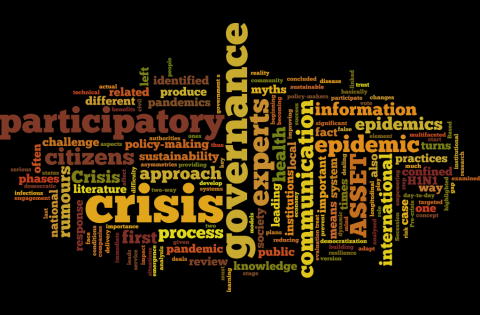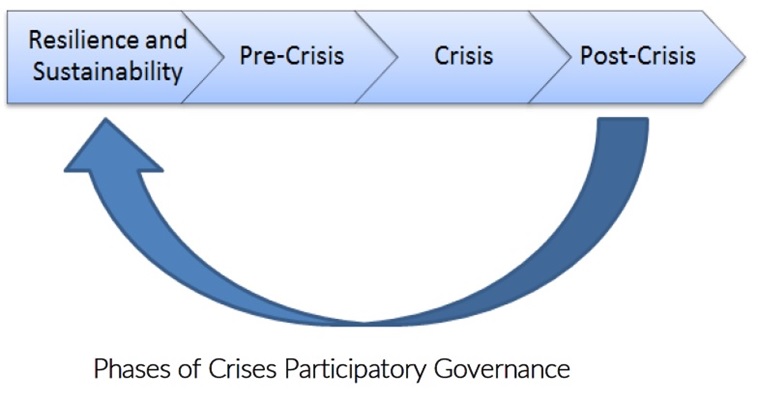Engaging citizens in health risk governance

Viruses and bacteria are not the only ones to spread during an epidemic. Rumours and misinformation can do that too, eventually leading to the constitution of a parallel information system that could undermine the efficacy of the institutional communication. Similar situations often arise in case of contested knowledge or when only few highly technical experts are left dealing with scientific information. Individuals or groups left outside such confined knowledge, often produce their own version of the reality, thus leading to the formation of rumours and false myths, which in turns may cause a loss of confidence in international and national health authorities.
Such a context represents a serious challenge for health institutions and policy-makers, whose aim is to prevent rumours and myths from becoming the main information channel during an epidemic or a pandemic. A way to face such a challenge is through citizen engagement in risk communication and organized health response. An approach that ASSET experts have called Crisis Participatory Governance and flagged as one of their objectives.
The first step in the development of this approach was a review of the literature on research in participatory governance during crisis, including epidemics and pandemics. ASSET experts examined aspects of governance at the local, national and international levels for crisis in general, and related it to infectious disease crisis such as epidemics and pandemics. Four examples – the South Sudan Secession Crisis, the present Ebola epidemic, the 2009 H1N1 pandemic, and 2015 H1N1 outbreak in India – were discussed as case studies.
Allowing citizens to exercise voice and vote; this is the core concept of participatory governance, which in turns leads to the implementation of public policies that produce some sort of changes in citizens' lives. It is, basically, a process of democratization of policy-making that has some relevant benefits: improving service delivery, empowering citizens and reducing government’s monopoly on policy-making.
The success of participatory governance seems to be more linked to democratic practices than to how advanced an economy is. The literature review highlighted the fact that power asymmetries can play a significant role in the emergence of rumours. But most of all, it is a matter of willingness. Of citizens and civil society to participate, and of the political system to include. Bridging the gap between these two elements is a dynamic process that can develop through different, contingent ways. Flexibility is also a key element, since it allows to adapt participatory governance activities to different epidemics and to the targeted community. Moreover, it is important to keep in mind that a crisis is multifaceted and longitudinal phenomenon, which means that effective crisis response, communication and preparation are by no means confined to the actual crisis.
ASSET experts identified four overlapping phases of such a process, the first one being Resilience and sustainability, which must start way before the beginning of an epidemic. In fact, the impact of a crisis can be minimized by building sustainable and resilient systems. This can be done, first of all, by restoring that trust towards states, international institutions and pharmaceutical companies that has been declining over the last years. The following phases are Pre-crisis, in which an immediate treat has been identified and is likely to affect a given society, Crisis, the stage where the difficulty peaks, and Post-crisis, which is much related to the resilience and sustainability phase and primary deals with the learning and evaluation.

Based on this four-steps framework, ASSET experts analysed models and experiences of participatory governance practices in times of crisis. They concluded that participatory governance is particularly important in times of crisis, as people become the centre of both providing aid and receiving it. Their analysis also shows the critical importance of implementing a two-way communication approach and of adapting plans to local conditions through continuous feedback, engaging the public on a day-to-day basis.
